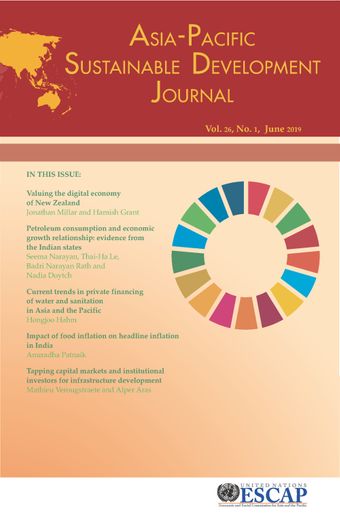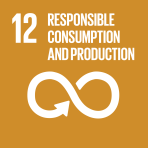-
Petroleum consumption and economic growth relationship: Evidence from the Indian States
- Source: Asia-Pacific Sustainable Development Journal, Volume 26, Issue 1, Dec 2019, p. 21 - 65
-
- 11 Dec 2019
Abstract
This paper reveals that over the period 1985-2013, the wealthier states of India experienced a prevalence of the feedback hypothesis between real gross domestic product growth and petroleum consumption in the short run and the long run. Over the short term, the whole (major) 23 Indian state panels show support for the conservative hypothesis. Regarding the panels comprising low- and middle-income Indian states, although there appeared to be significant bidirectional effects in the long run, none of the results suggest that energy consumption increases economic growth. This implies that growth in energy demand can be controlled without harming economic growth. The results, however, indicate that for the low- and middle-income states, increases in petroleum consumption could adversely affect economic activity in the short and long run. These findings relate to the aggregate data on petroleum. Examining the short-run and long-run energy-growth linkages using disaggregated data on petroleum consumption reveals that only a few types of petroleum products have stable long-run relationships with economic growth. In fact, with disaggregated petroleum data, the vector error correction model (VECM) and cointegration results support the neutral hypothesis for high-incomes states. For the low- and middle-income groups, while the conservation effect is found to prevail in the short run and the long run, higher economic growth appears to reduce consumption of selected types of petroleum products.





